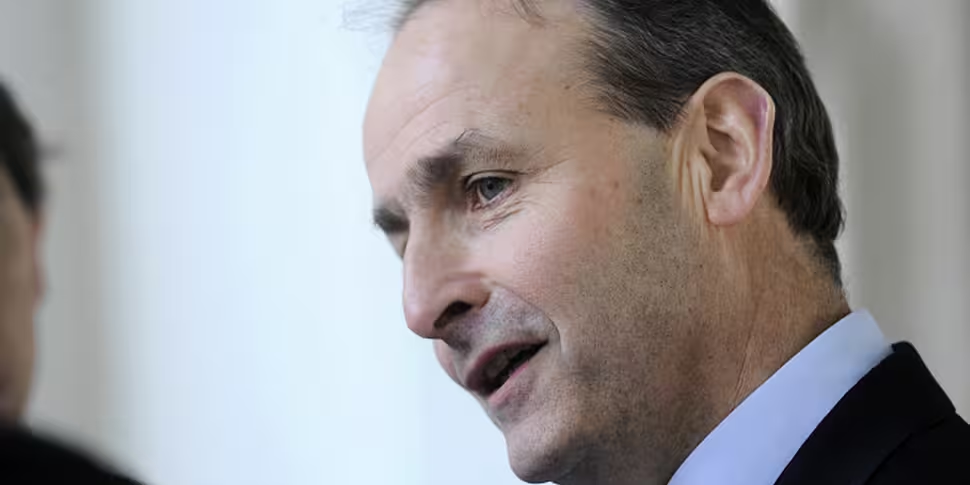Two years ago, the most successful political party in western Europe over the past eighty years went into uncharted territory. Since it was first elected to government in 1932, Fianna Fail had always won at least one seat in every constituency. And in 24 consecutive general elections, it had always been the largest political party in the state.
Generally by a country mile. Its worst ever electoral performance in that time - 68 seats – was just two behind Fine Gael’s best ever return.
That proud record didn’t just end in February, 2011, it was obliterated. Over half the country – including almost all of Dublin and the capital’s commuter belt – became FF free zones. Fianna Fail was reduced to 20 seats, just over a quarter of Fine Gael’s total.
After Labour won the Dublin West seat left vacant by the sad passing of Brian Lenihan, Fianna Fail’s seat total of 19 was exactly half that of the junior coalition partner. Labour had previously never come closer than 36 seats to Fianna Fail and in most general elections the gap was 60-plus seats.
Sinn Fein, the party de Valera left for electoral dead when setting up Fianna Fail in 1926, was also nipping at its heels, just a few seats behind.
Despite that humiliation, Fianna Fail has been showing signs of recovery over the past 12 months. Successive opinion polls has shown the party jostling with Fine Gael for first place. A clear demonstration that predictions of the party’s ultimate demise were wide of the mark.
But despite this relative reversal of fortunes, another unwanted first this week has served as a reminder of how far Fianna Fail has fallen.
Never before in its history has the party leader been forced to accede to a free vote on a key piece of legislation, as Micheal Martin had to do on Thursday.
To some degree, it’s a reflection of how complex the abortion issue has always been in Ireland. But more so, it’s down to Fianna Fail’s current weakness in the Dáil.
A parliamentary party of 19 TDs and 14 senators just couldn’t afford to lose up to half that total. That’s what the party was facing if Micheal Martin had insisted on imposing a whip and backing the government’s legislation on abortion.
A split of that nature would clearly have been catastrophic. So Martin swallowed hard and took the pragmatic choice to allow a free vote. It was the least worst option.
It is undoubtedly a blow to his authority. He’s certainly not a stupid man. He will know that. But he will also know that the damage to his authority would have been far greater if he had pushed this one and ended up losing half his parliamentary party. The tensions and aggravation that would have caused could ultimately have scuppered his leadership and Fianna Fail’s recovery.
Martin quite rightly decided to take this one on the chin and move on. And, by doing so, it might just work out ok for Fianna Fail.
While it’s a big story in the confines of Leinster House, many of the general public will either barely notice what has happened or reason that, for a vote on a matter of conscience, it’s perfectly logical and even mature to allow a free vote.
Of course, that isn’t why Martin has opted for this course but, co-incidentally, it does fit in quite neatly with his calls for a ‘new type of politics’. Hence, the line from Fianna Fail that it is now looking at other issues of conscience – such as euthanasia – where a free vote might be contemplated.
And while Fine Gael TDs might currently be engaged in self-congratulation at Enda Kenny’s no-nonsense stand on the issue, that might change if the party loses more than a couple of TDs when the legislation is voted upon. Fianna Fail’s allowance of a free vote is likely to increase the pressure on wavering Fine Gael TDs. It certainly ends the possibility of the legislation going through without a vote, as the government had hoped.
Fianna Fail’s neutral stance might also help woo some traditional pro-life voters from Fine Gael, without necessarily alienating the vast middle ground of voters for whom this issue is not to the forefront.
As for the damage to his authority, that’s only likely to be in the short term. Martin’s position is rock solid. And, unlike a year or so ago, the parliamentary party is pretty united and happy. There’s no desire in Fianna Fail for a change in leadership. As with any party leader, Martin’s fate is ultimately linked to his and the FF’s performance the polls. And right now, he’s ahead of schedule and target on both scores.
There is, of course, one more ‘first’ that Micheal Martin will definitely want to avoid. Every Fianna Fail leader to date – de Valera, Lemass, Lynch, Haughey, Reynolds, Ahern and Cowen – has also been Taoiseach. But none of those seven leaders – with the possible exception of de Valera – had as big a hill to climb to become Taoiseach as Martin still does.
Whether he gets there or not, we can say with some certainty, he won’t fail because of his decision to allow a free vote on abortion. If he hadn’t allowed such a free vote though, it just might have been fatal to those chances.









